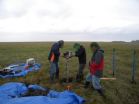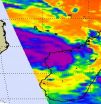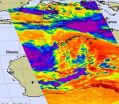(Press-News.org) COLLEGE PARK, Md. - Great works and praiseworthy behavior may bring respect and admiration, but these won't help us to escape blame when we do something wrong, says a new study by researchers at the University of Maryland and Harvard University. To do that, the researchers say, one needs to be a victim not a hero!
In the study, participants responded to a number of scenarios that mirrored real-life moral transgressions, from stealing money to harming someone. Results revealed that, no matter how many previous good deeds someone had done, they received just as much blame - if not more - than someone with a less heroic background.
"People may come down even harder on someone like the Dalai Lama, than they do on 'Joe Blow,' said author Kurt Gray, assistant professor of psychology at the University of Maryland." However, in our research those who have suffered in the past received significantly less blame - even if such suffering was both totally unrelated to the misdeed and long since past."
The article, titled "To Escape Blame, Don't be a Hero - be a Victim" is published in the March issue of the Journal of Experimental Social Psychology. The findings are based on three experiments conducted by Gray and Daniel Wegner, professor of psychology at Harvard University.
"Our research suggests that morality is not like some kind of cosmic bank, where you can deposit good deeds and use them to offset future misdeeds," said Gray, who directs the Mind Perception and Morality Lab at the University of Maryland. "Instead, people ignore heroic pasts - or even count them against you - when assigning blame."
Gray suggests that the explanation for these findings is our tendency to divide the world up into moral agents - those who do good and evil - and moral patients - those who receive good or evil. "Psychologically, the perceived distance between a hero and a villain is quite small, whereas there's a wide gap between a villain and a victim. This means that heroes are easily recast as evil doers, whereas it's very hard to turn a victim into a villain."
Favorite Strategies of Fallen Celebs Confirmed
In the experiments involved in this study, those who highlighted past suffering were held less responsible for transgressions and given less punishment. According to the authors, this fact suggests an explanation for why many celebrities immediately go into rehab or claim victimhood after being caught doing something wrong. Of course, this research doesn't address whether someone is actually blameworthy, but it does indicate a clear strategy for escaping blame.
In fact their research finds that people had trouble even remembering the misdeeds of victims. In one experiment, people read about either a hero, normal person, or a victim stealing some money, and then were given a surprise memory test after. Far fewer people remembered the victim stealing money.
The authors note that there certainly are benefits from good deeds for both individuals and society. For example they say, "not only do virtuous deeds help the recipient of the deed, but research suggests that even small acts of good can serve to significantly improve the doers mood."
But "whether you are trying to defend yourself against a spouse's wrath for a missed birthday or save yourself from execution for a grisly murder, your task is to become the ultimate victim . . . with stories of childhood abuse, of broken hearts and broken arms," Gray and Wegner write.
INFORMATION:
This research was supported by the National Science Foundation, the Institute for Humane Studies and by a fellowship from the Social Sciences and Humanities Research Council of Canada.
MPM Lab
http://www.mpm.umd.edu/
Maryland's Mind Perception and Morality Lab investigates moral judgments and how people perceive the minds of others. Research conducted by MPM lab members has been featured in the New York Times, the Economist, the National Post, Harvard Magazine, the Boston Globe and at a TED event.
END
EAST LANSING, Mich. — College students who consider dropping out are particularly sensitive to a handful of critical events including depression and loss of financial aid, according to a study led by Michigan State University scholars.
Surprisingly, however, other events such as a death in the family and students' failure to get their intended major did not have a significant influence on their intention to drop out, said Tim Pleskac, MSU assistant professor of psychology and lead researcher on the project.
By identifying which risks prompt students to consider quitting, ...
Unlike Pinocchio, liars do not usually give telltale signs that they are being dishonest. In lieu of a growing nose, is there a way to distinguish people who are telling the truth from those who aren't? A new report in Psychological Science in the Public Interest, a journal of the Association for Psychological Science, discusses some of the common misconceptions about those proficient in the art of deception, reviews the shortcomings of commonly used lie-detection techniques, and presents new empirically supported methods for telling liars from truth-tellers with greater ...
Northwestern University scientists have discovered a new mechanism in the core gears of the circadian clock. They found the loss of a certain gene, dubbed "twenty-four," messes up the rhythm of the common fruit fly's sleep-wake cycle, making it harder for the flies to awaken.
The circadian clock drives, among other things, when an organism wakes up and when it sleeps. While the Northwestern study was done using the fly Drosophila melanogaster, the findings have implications for humans.
The research will be published Feb. 17 in the journal Nature.
"The function of ...
Up to two-thirds of Earth's permafrost likely will disappear by 2200 as a result of warming temperatures, unleashing vast quantities of carbon into the atmosphere, says a new study by the University of Colorado Boulder's Cooperative Institute for Research in Environmental Sciences.
The carbon resides in permanently frozen ground that is beginning to thaw in high latitudes from warming temperatures, which will impact not only the climate but also international strategies to reduce fossil fuel emissions, said CU-Boulder's Kevin Schaefer, lead study author. "If we want ...
VIDEO:
Nobody enjoys colonoscopies, including mice. University of Missouri researchers are excited about the potential of using genetic biomarkers to predict colon cancer caused by inflammation. A new method developed at...
Click here for more information.
COLUMBIA, Mo. – Nobody enjoys colonoscopies, including mice. University of Missouri researchers are excited about the potential of using genetic biomarkers to predict colon cancer caused by inflammation. A new method developed ...
WASHINGTON—February 16, 2011—Despite the unpredictable economy, nearly three-quarters (73%) of New Jersey residents think spending money on research to improve health globally is important to jobs and incomes in the state, according to a new statewide poll commissioned by Research!America. The poll data will be released today at a meeting in Washington, DC, of prominent global health research and development (R&D) experts and New Jersey business, academia and nonprofit leaders. This is part of a six-state effort by Research!America.
According to the poll, most of the ...
The California Health Interview Survey (CHIS), the nation's largest state health survey and a primary source of information on California's diverse population, released its latest data today on more than 100 topics affecting the health and well-being of the state's residents.
The random–digit-dial telephone survey, conducted every two years by the UCLA Center for Health Policy Research, gathers essential information from tens of thousands of California households on a wide variety of topics, from health insurance and public program participation to diabetes, obesity ...
Infrared satellite data from NASA is showing some strong thunderstorms over west-central Madagascar today as Tropical Storm Bingiza continues to hug the western coast of the island nation.
The Atmospheric Infrared Sounder (AIRS) instrument that flies aboard NASA's Aqua satellite captured an infrared image of Tropical Storm Bingiza today, Feb. 16 at 10:17 UTC (5:17 a.m. EST). The image revealed some strong convection over the west-central coast where thunderstorm cloudtops were high and dropping moderate to heavy rainfall. Infrared data can provide temperature information ...
NASA's Aqua satellite captured an infrared image today of tropical cyclones affecting Australia in the western and northern areas of the country. Newly formed Tropical Storm Carlos is bringing heavy rains and gusty winds to Darwin and the Northern Territory, while Tropical Storm Dianne is bringing rains and winds to Western Australia.
NASA's Aqua satellite passed over Australia today, Feb. 16 at 05:17 UTC (12:17 a.m. EST/ 2:47 p.m. Australia/Darwin local time. The Atmospheric Infrared Sounder (AIRS) instrument captured an infrared image of both tropical storms and found ...
ESA's Herschel space observatory has discovered a population of dust-enshrouded galaxies that do not need as much dark matter as previously thought to collect gas and burst into star formation.
The galaxies are far away and each boasts some 300 billion times the mass of the Sun. The size challenges current theory that predicts a galaxy has to be more than ten times larger, 5000 billion solar masses, to be able form large numbers of stars.
The new result is published today in a paper by Alexandre Amblard, University of California, Irvine, and colleagues.
Most of the ...




